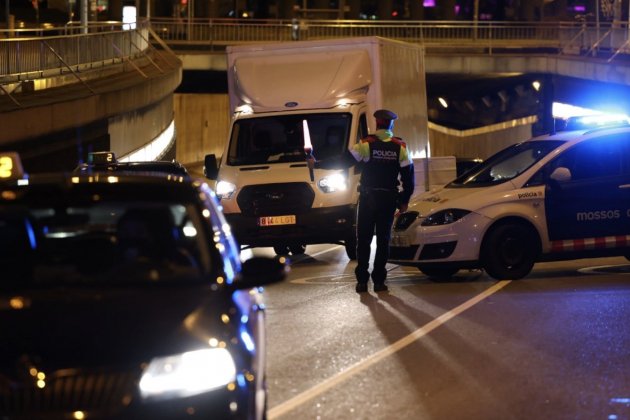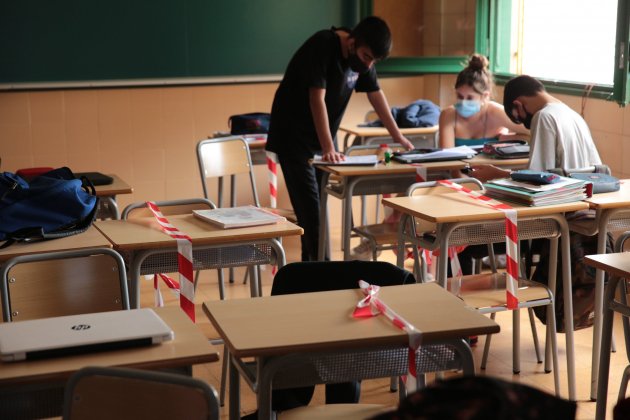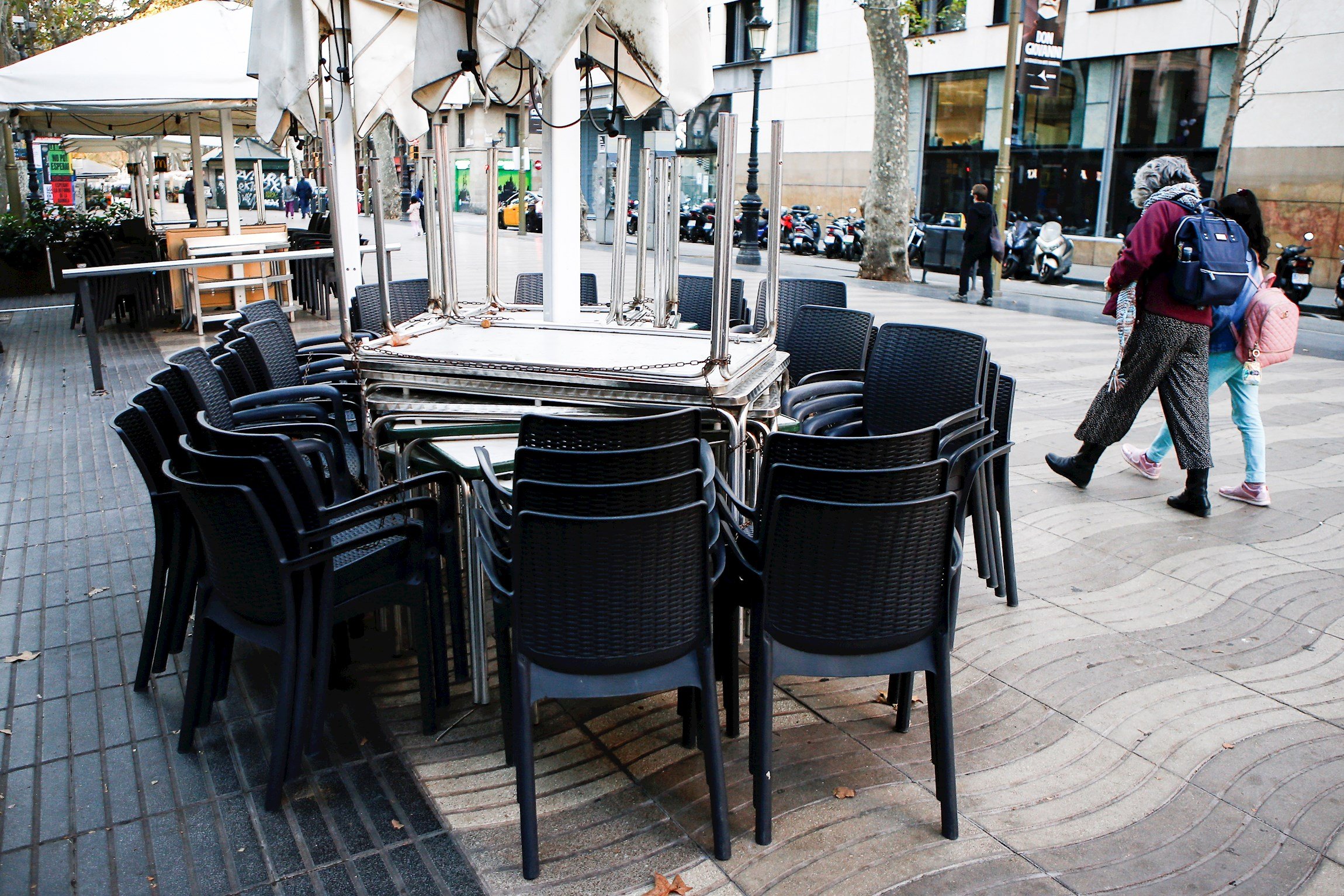The situation of Covid-19 in Catalonia is "extremely serious, critical". That was the message from the Catalan government this Thursday as it announced new measures to attack virus indicators which, in some cases, are reaching levels not seen since March. Measures already in force are being maintained or extended. Below are all the second wave anti-Covid restrictions which will be in effect this Friday October 30th in Catalonia for an initial two week period:
Perimeter closure
Several of Spain's autonomous communities have already decided to apply perimeter closure measures, and this Thursday the Catalan government has followed suit, implementing the following perimeter confinement measures in Catalonia:
- Perimeter confinement of Catalonia as a whole for two weeks
- Confinement within municipalities at weekends, from Friday 6 am to Monday 6 am.

Mossos d'Esquadra police making curfew checks. / Sergi Alcazar
Therefore, mobility will be restricted to prevent the increase in infections, although there are exceptions. However, the following are acceptable grounds for entry and exit from confined areas:
- Health and social services visits
- Work obligations
- Education
- Return to place of residence
- Care for people with special needs (elderly, minors, dependents)
- Travel to financial institutions
- Sitting official exams
- Renewal of permits and documentation
- Cases of need, duly substantiated
In addition, in the case of the weekend municipal confinement, the following exceptions are allowed:
- Visits to cemeteries on October 31st and November 1st (All Saints weekend), as long as they are within the same comarca - county)
- Individual sports activities between neighbouring municipalities
- Prison leave
Curfew
The limitations on nighttime mobility in Catalonia continue, with a curfew in force between 10pm and 6am. Commercial establishments in general must close at 9pm. The following exceptional reasons are valid for being out after 10pm, but you should carry documentation to prove them, preferably a mobility certificate:
- Urgent health attention and pharmacy visits.
- Work obligations
- Mobility of essential services, including health and social services.
- Care for people with special needs (elderly, minors, dependents)
- Return to place of residence
- Pet owners can take animals for a walk between 4am and 6am, close to home.
- Home delivery services for food working out of restaurants may continue to operate until 10pm.
Gatherings
With regard to social gatherings, the recommendations and obligations that have been in operation for the last few weeks remain in force. They are as follows:
- Gatherings of more than 6 people are prohibited (unless they belong to the same cohabitation "bubble")
- Ban on consuming food and beverages in gatherings in public spaces (except on school trips)
Distance working
As for the employment sector, the Catalan government cannot compel distance working, but strongly recommends it, with the following measures:
- Companies are obliged to limit mobility as much as possible
- Recommendation to promote distance telework and, if not possible, allow flexible hours in order to reduce rush hour transport volumes
- Manage spaces and staff to avoid crowding and reduce the number of people in a workspace simultaneously
Schools and univerisities
With regard to education, the following measures have been taken:
- All university teaching will be virtual, and only internships and exams will be in person
- Attendance at Batxillerat and FP (senior secondary school and vocation training courses) is reduced
- Apart from this, in-person classes and activities are maintained in primary and secondary schools

The Catalan government recommends reducing in-person classes for Batxillerat and other post-compulsory secondary courses to reduce infections. / Sergi Alcazar
Shops and businesses
In terms of shops and services, all companies that provide essential services, such as health, food retail, and basic necessities, will be able to continue operating as at present.
However, all businesses are reuired to stop offering any services that require close personal contact. There will also be restrictions on other shops:
- Non-food or non-essential retail stores may only open under the following conditions:
- Stores smaller than 800 m2 must restrict occupancy to 30% of normal capacity
- Stores larger than 800 m2 can only open by limiting the floor area which is open to 800 m2
- Shopping centres and malls must close: the only exceptions will be essential goods stores in those centers which are smaller than 800 m2 and have direct access from the street, restricting occupancy to 30%.
- Food & beverage: bars and restaurants remain closed, as well as other nightlife facilities. Restaurants will only be able to offer takeaway services.
- Beauty sector: hairdressers will only be able to provide services for "hygienic reasons".
Leisure, culture and sports activities
Regarding cultural and sporting activities, and extracurricular school activities, the following will be closed:
- Extracurricular and children's leisure activities, such as play centres and esplais.
- Gyms, sports facilities and other sports activities (only professional sports are maintained)
- All sports and federated competitions are suspended (except national and international leagues)
- All cultural, entertainment and leisure activities are suspended
- Trade fairs and festivals
- Gambling, casinos and bingo halls
Other restrictions
In addition, the following restrictions apply:
- Parks and gardens will close at 8pm
- Museums and art galleries will be able to open with 33% of their normal maximum capacity
- Libraries are closed for normal entry, although books and items can be reserved online and collected
- Civil and religious ceremonies are restricted to 30% of their normal maximum capacity

